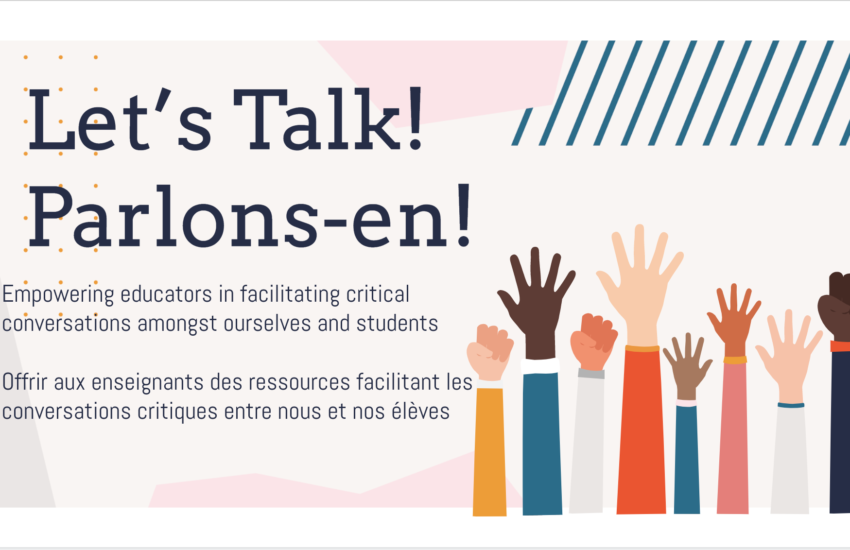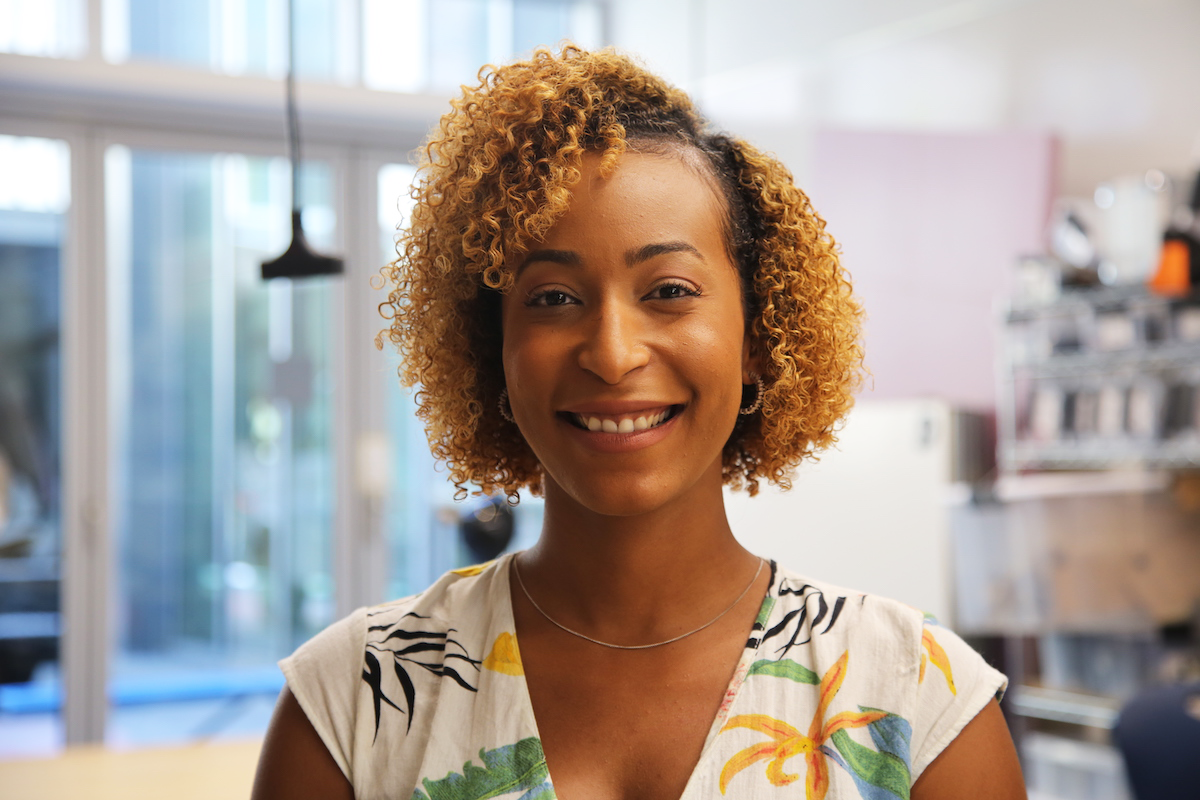For the 2020-21 school year, Cassandre Milard, a learning specialist in the Lycée’s Elementary School, has been given a research grant from the Lycée to help faculty and staff create more inclusive classroom environments. As part of her grant, she led a series of six optional training sessions called, “Let’s Talk: Facilitating Critical Conversations with Ourselves and Our Students.” Her sessions include educational videos and research on implicit and unconscious bias, and classroom best-practices, followed by break-out groups for discussion, reflection and sharing. Cassandre also trained eighth-grade student delegates on active and reflective listening, important skills to develop when engaging in critical conversations.
Why did I choose to become an educator? My experience as a student was in unexciting classrooms where I was asked to study, memorize and apply knowledge–a passive consumer of my own education. The classroom I envision is an environment where excitement co-exists with and even stimulates serious intellectual and academic engagement.
Each classroom is its own community, and our capacity to generate excitement is deeply affected by our interest in one another, in hearing one another’s voices, in recognizing one another’s presence. Everyone’s presence must be acknowledged, and it must be demonstrated through pedagogical practices.
When education is the practice of freedom, students are not the only ones who are asked to learn and to share. Any classroom that employs a holistic model of learning will also be a place where teachers grow, and are empowered by the process.
For teachers, it means that we must genuinely value everyone’s presence. There must be ongoing recognition that everyone influences the classroom dynamic by their very presence, with contributions of all students viewed as valuable resources.
Engaged pedagogy : focus on a holistic approach to learning
Proposed by bell hooks, engaged pedagogy is about building a classroom community where our capacity to generate excitement is deeply affected by our interest in one another, in hearing one another’s voices, in recognizing one another’s presence.
Thich Nhat Hanh, Buddhist monk, peace activist, and founder of the Plum Village Tradition always speaks of the teacher as a healer. His approach to knowledge called on students to be active participants, to link awareness with practice. Thich Nhat Hanh offers a way of thinking about pedagogy that emphasizes wholeness, and the unification of mind, body, and spirit.
Similarly, Brazilian educator and philosopher Paulo Freire believes that, “There’s no such thing as neutral education. Education either functions as an instrument to bring about conformity or freedom.” His school of thought came to be known as critical pedagogy, greatly influencing educators who advocate for inclusive education and equitable classroom practices.
Where do the two meet? When education is the practice of freedom, students are not the only ones who are asked to learn and to share. Engaged pedagogy does not seek simply to empower students. Any classroom that employs a holistic model of learning will also be a place where teachers grow, and are empowered by the process.
Each classroom is its own community, and our capacity to generate excitement is deeply affected by our interest in one another, in hearing one another’s voices, in recognizing one another’s presence.
But this empowerment cannot happen if we refuse to be vulnerable while encouraging students to take risks. As a classroom teacher, and now as I teach in more individual settings as a learning specialist, I do not expect students to take any risks that I would not take, to share in any way that I would not share.
When educators bring narratives of their experiences into classroom discussions, it eliminates the myth that we are the all-knowing perfect source of knowledge. As we demonstrate vulnerability and link our personal experiences to academic discussions, we show students how experience can illuminate and enhance our understanding of academic material. It is absolutely crucial that teachers move away from being silent interrogators, into actively practicing vulnerability within the classroom, being wholly present in mind, body, and spirit.
Introducing Let’s Talk
In September 2020, I introduced the “Let’s Talk” workshops at the Lycée Français de New York for faculty members. Held twice a month, these workshops were a space for gathering, learning, and growing, mirroring the concept of engaged pedagogy.
The main objective of these sessions was to share insights, strategies and critical reflections on pedagogical practices covering social identities, intersectionality, race and other topics. Each week, we discussed best practices to confront the biases that have shaped teaching practices in our society and examined new ways for sharing knowledge. Participants worked on centering student voices in all our practices, on celebrating student identities, and ensuring that their presence as adult pedagogues encourages authenticity in what is shared within the walls of the classroom. Furthermore, as educators honed in on the idea of teaching as a performance act meant to catalyze active participation in learning, they deconstruct traditional pedagogical methods.
In every session, as I share resources, it is always with the mindset that these strategies are not the magic formula to make the classroom perfect. To say so would undermine room for growth and individualization–the insistence that engaged pedagogy recognizes each classroom as different, that teaching practices must constantly be changed, and re-conceptualized to address each new teaching experience.
Diversity, equity and inclusion (DEI) work is continuous, long-lasting work that goes beyond a single workshop, a guest speaker or one training day. Organizational change does not happen with one person; it happens with the efforts of the community. Time set aside for professional development of DEI concepts should be required for all faculty and staff. It is my hope that the work around DEI will become a thread found in every fabric of the Lycée.
Reading suggestions:
Being the Change: Lessons and Strategies to Teach Social Comprehension by Sara Ahmed
We Got This.: Equity, Access, and the Quest to Be Who Our Students Need Us to Be by Cornelius Minor
Fumbling Towards Repair: A Workbook for Community Accountability Facilitators by Mariame Kaba and Shira Hassan
Circle Forward: Building a Restorative School Community by Carolyn Boyes-Watson, Kay Pranis, Nancy
Teaching to Transgress by bell hooks
About the Author :
Cassandre Milard, a learning specialist in the Lycée’s elementary school, is a leader in intentional and critical reflections on teaching practices, especially in the area of diversity, equity and inclusion. She envisions a community of educators dedicated to disrupting inequity and advancing justice within their classrooms. She has received a leadership grant for the 2020-2021 school year to develop training programs about diversity and bias from a bicultural standpoint for students from preschool through high school.


